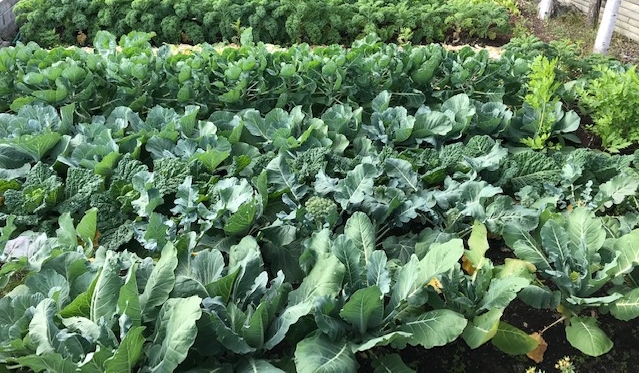
Main Project Contact: Mike Palmer
Project Start Date: September 2020
Project End Date: March 2022
Project Name: Yellowknife Garden Metals Study: Arsenic and Mining Associated Metals in Local Garden Produce in the Yellowknife Area
Overview:
- The Yellowknife Garden Metals Study (YKGMS) collects information on the amount of arsenic and other mining related contaminants (antimony, cadmium, lead, manganese, copper, zinc, and vanadium) in backyard garden soils and produce in Yellowknife (YK), Ndilo, Dettah and surrounding area.
- Studies have shown soils in the YK area are impacted by past mining emissions. Concentrations of arsenic in soil near YK, particularly near the Giant and Con mines, are higher than other parts of the country.
- A 2001 study from Royal Military College found that produce from 9 Yellowknife gardens had higher levels of arsenic than the national average, a risk assessment concluded that the Yellowknife garden produce is still safe to eat.
- A growing number of YK residents have personal gardens or are starting agricultural initiatives, including selling locally grown produce. It is important to evaluate the levels of arsenic in garden soils and produce to evaluate the risk associated with eating locally produced produce.
Objectives:
- Conduct a survey of arsenic and metal concentrations in Yellowknife area garden produce and garden soils
- Data from this study will inform a risk assessment for the consumption of garden vegetables for residents
- Investigate how specific garden produce take up metals from soil and the form of arsenic present in local produce
Location:
This study relies on participants from YK, Ndilo, Dettah and surrounding area submitting garden produce and soil for analysis.
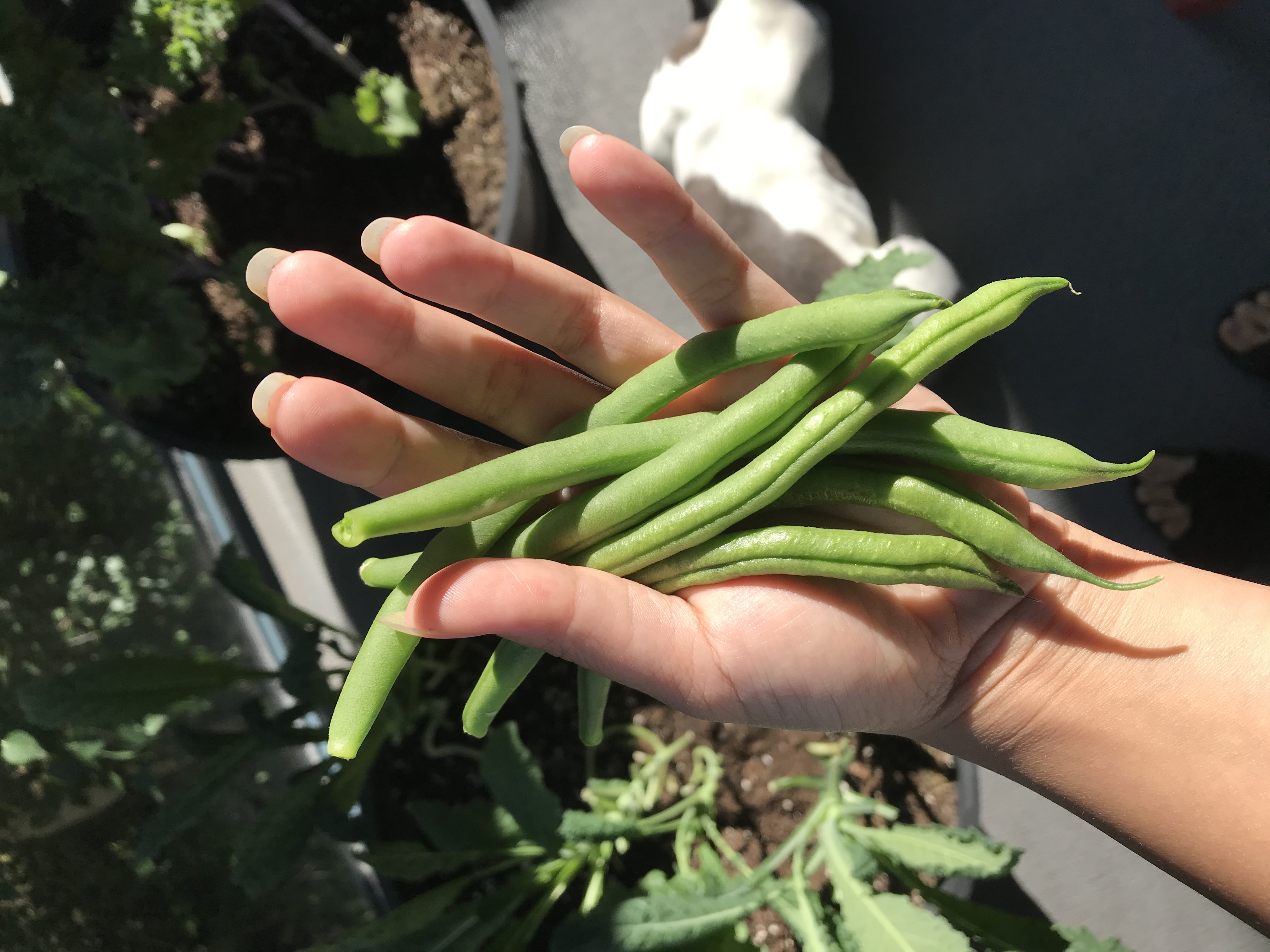
Methods:
- Participants from Yellowknife, Ndilo, Dettah and surrounding area are able to submit garden produce and soil for analysis.
- Any type of garden produce is welcome, we are particularly interested in spinach, kale, peas, beans, potatoes and carrots.
- Participants are asked to harvest and wash garden produce as they would for consumption and place approximately 1 cup in a clean zip-lock bag. Different types of produce should be place in different bags. Collect approximately ¼ cup of soil from four different locations in your garden and place all the soil together in a separate Ziploc bag. Label all the bags with the date of collection, location, and your contact information. An accompanying sample collection sheet is available.
- Produce and soil samples submitted will be sent to Queens University for analysis of arsenic and other mining associated metals
- Participants who submit locally grown produce and soil to the study will receive their individual results and interpretation of what those numbers mean
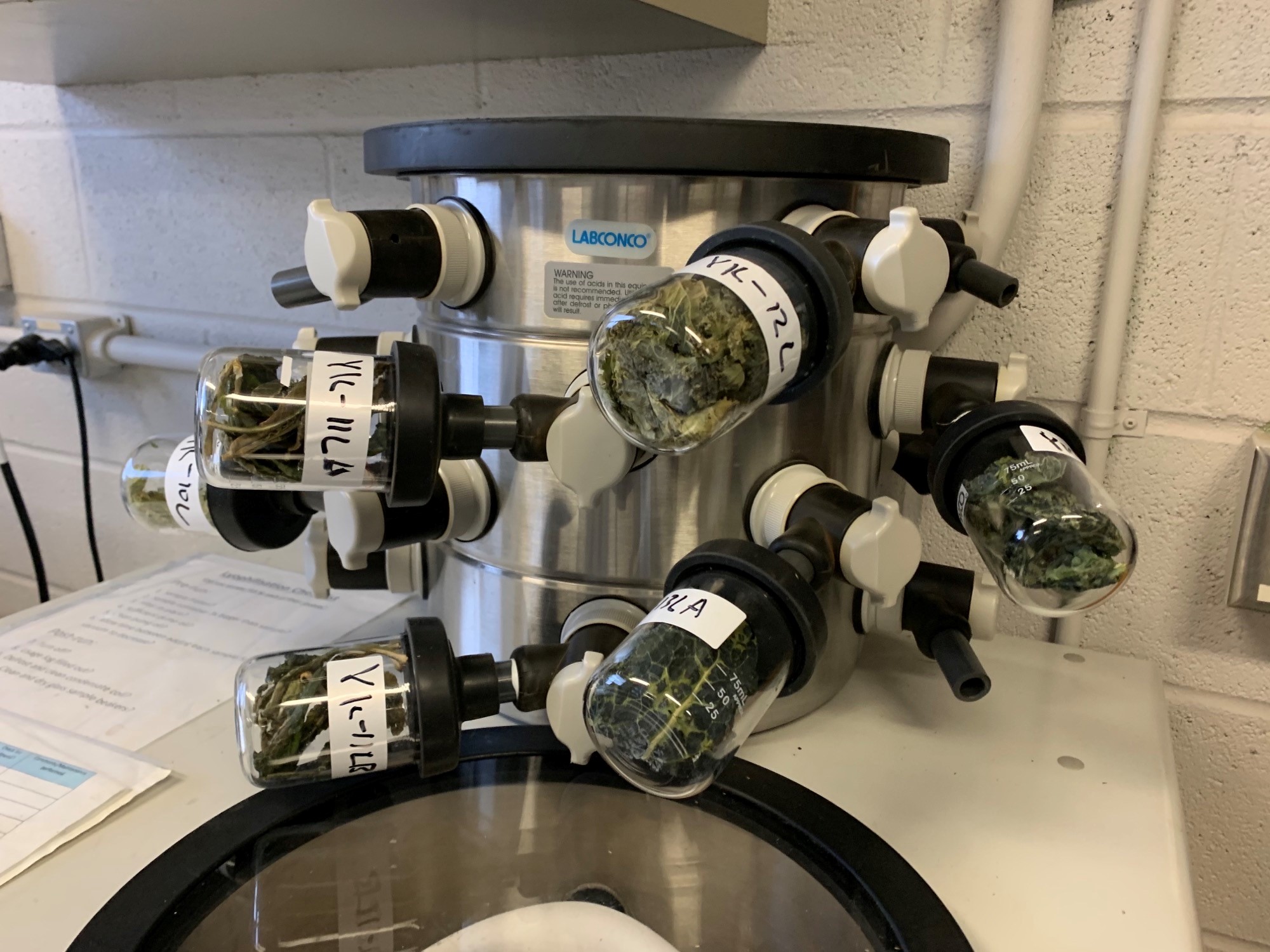
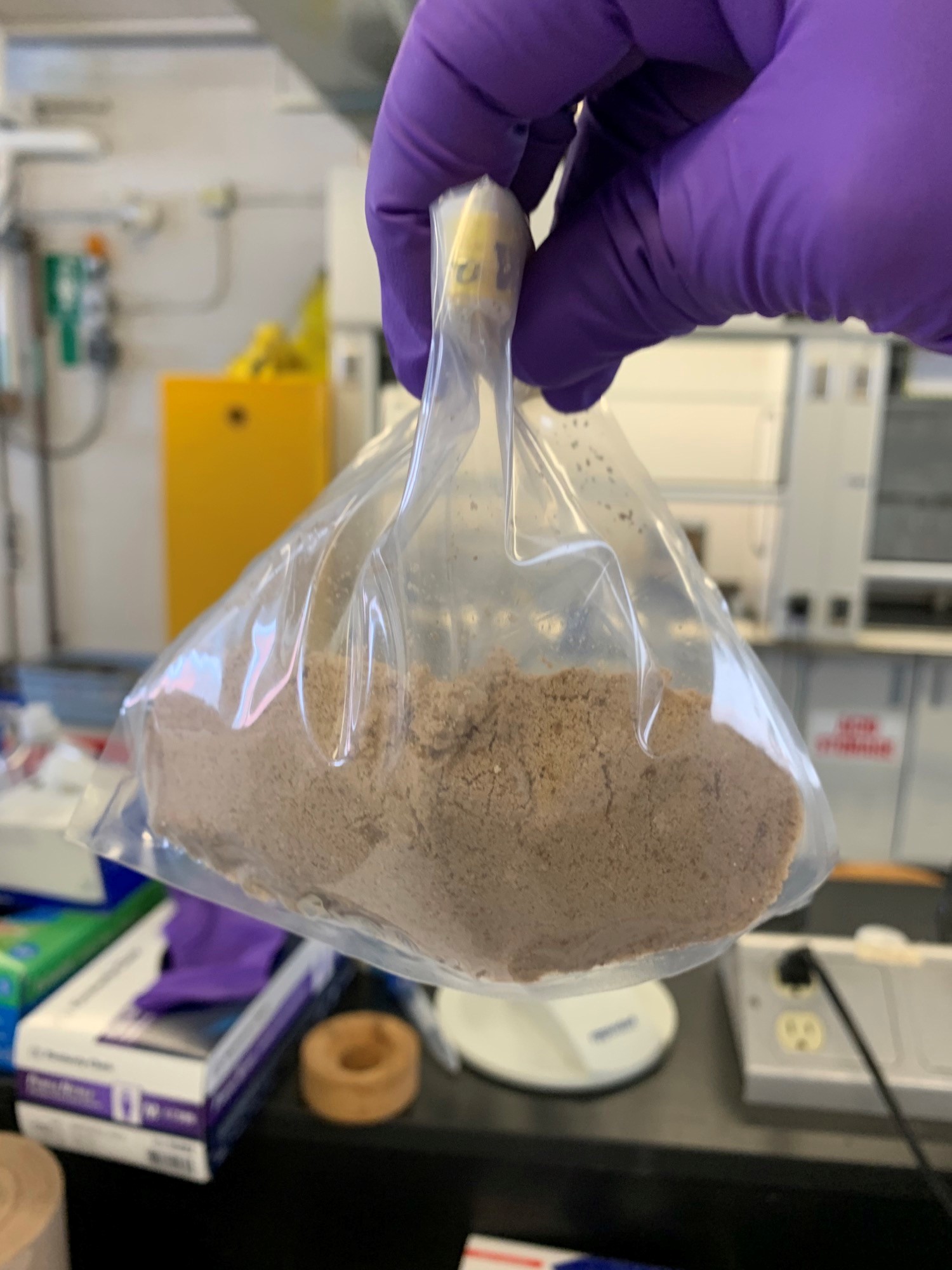
Year 1 Summary:
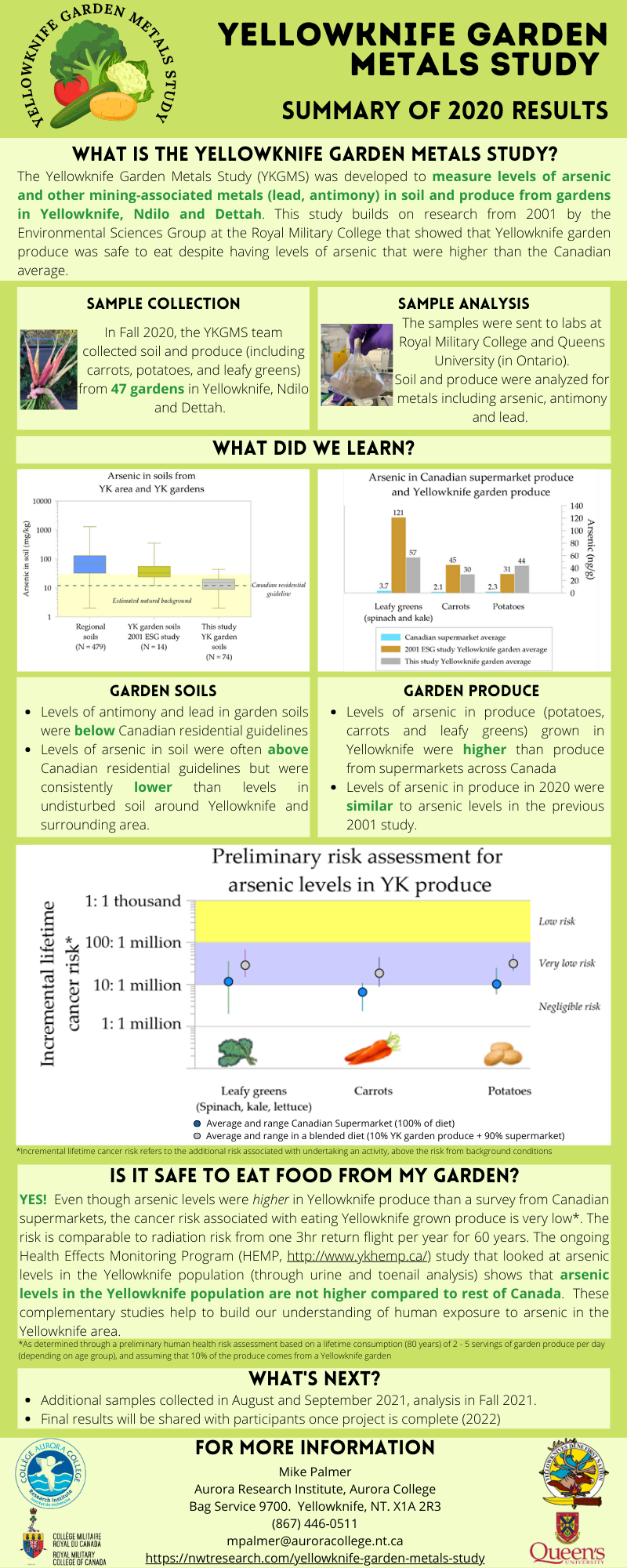
External Partners:
Yellowknives Dene First Nation
Royal Military College of Canada
Keywords:
Food, arsenic, metals, mining,
Category:
Updated September 2021
